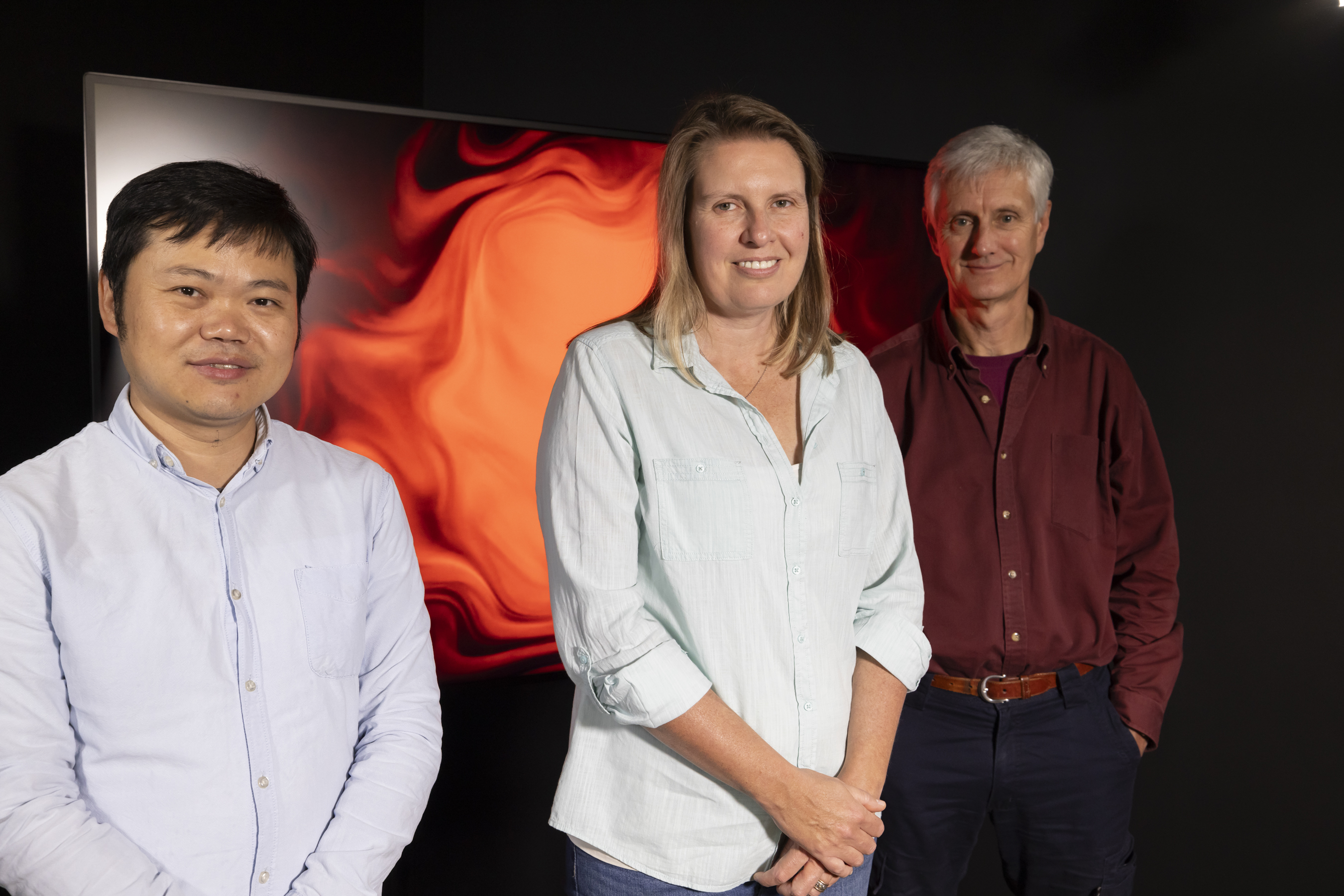July 21, 2023
UOW research collaboration on ancient humans nominated for Eureka Prize
Groundbreaking work on dating archaeological sediments nominated for interdisciplinary scientific research
University of Wollongong (UOW) researchers Professor Zenobia Jacobs, Professor Bo Li and Distinguished Professor Richard Roberts have been recognised in this year's Eureka Prize shortlist for their work investigating Denisovans – an ancient group of humans who were once widespread across Asia.
The Eureka Prizes are prestigious science awards presented annually by the Australian Museum. The prizes recognise and celebrate outstanding achievement in scientific research, innovation, and communication in Australia. The Eureka Prize for Excellence in Interdisciplinary Scientific Research is awarded for an outstanding research outcome achieved by a team of researchers from two or more unrelated disciplines.
Based out of UOW’s School of Earth, Atmospheric and Life Sciences, the team, nicknamed The Time Travellers, developed a new method to date single grains of sand and collaborated with archaeologists, palaeoecologists and geneticists to shed new light on our ancient human relatives.
“We are the only species of human alive today, but two groups of ancient humans – the Neanderthals and their close cousins, the Denisovans – were once widespread across Europe and Asia. Denisovans were first identified from the ancient DNA recovered from a fossil finger bone found at Denisova Cave in Siberia. The remains of this enigmatic human have since been discovered at only one other site, a cave in Tibet,” Professor Jacobs said.
“We have pioneered new methods of dating sediments. These have allowed us to construct firm timelines for the remains and activities of Denisovans at both sites, the changes in the local fauna and flora, and the climatic fluctuations they experienced. Working with archaeologists who examine stone and bone tools, scientists who study animal and plant fossils, and geneticists who analyse ancient DNA preserved in cave sediments, we have uncovered new clues to the life and times of our extinct human relatives.”
Professor Roberts said the nomination recognised the importance of collaborative, interdisciplinary teamwork in extending the frontiers of knowledge about the human and environmental history of our planet.
“The project involves an international team of researchers, each with their own deep knowledge and expertise. The fascinating discoveries we’ve made about the Denisovans would not have happened without us joining forces to solve this intriguing puzzle,” Professor Roberts said.
Professor Li added, “A Eureka Prize nomination is a great honour for any scientist working in Australia. This category proves that there is great power in scientists of different disciplines working together to achieve a shared goal.”
UOW Deputy Vice-Chancellor and Vice-President (Research and Sustainable Futures) Professor David Currow said the University is honoured by the nomination and view it as well-deserved recognition of the significant contributions made by these esteemed researchers.
“The Eureka Prize stands as the ultimate scientific acknowledgment in Australia, and we, as a university community, join together in congratulating Professors Roberts, Jacobs and Li. The whole community is proud to witness their impact on the world of science and archaeology being acknowledged on such a prestigious platform."
